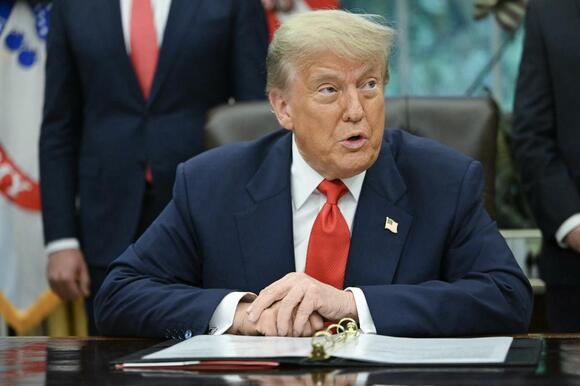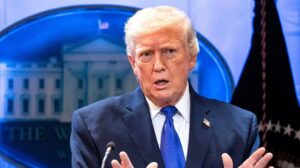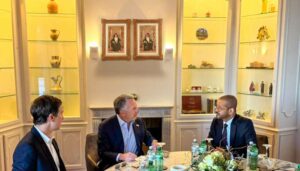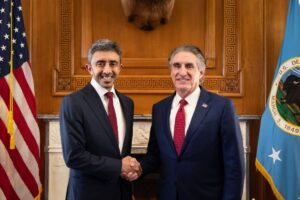Trump Announces 30% Tariff on EU and Mexico, Escalating Trade Tensions

Washington, The Gulf Observer: President Donald Trump announced on Saturday that the United States will impose a 30% tariff on imports from the European Union and Mexico starting August 1, in a move that risks heightening global trade tensions and disrupting ongoing negotiations.
In a post published on his social media platform, Truth Social, President Trump shared separate letters addressed to European Commission President Ursula von der Leyen and Mexican President Claudia Sheinbaum. The letters formally notified both leaders of the upcoming tariff measures on goods entering the United States from their respective regions, according to media reports.
The announcement comes amid escalating trade actions by the U.S. administration. Earlier this week, President Trump unveiled a broader tariff strategy targeting several key trading partners, including Japan, South Korea, Canada, and Brazil. The measures also included a 50% tariff on copper imports.
The new tariffs on EU and Mexican goods could significantly impact transatlantic and regional trade relations. The European Union had been working to finalize a comprehensive trade agreement with the United States by the end of this month—a goal that now appears uncertain in light of the latest developments.
Analysts warn that the imposition of such steep tariffs may trigger retaliatory measures and stall economic cooperation efforts, particularly at a time when global supply chains remain vulnerable.
As of now, neither the European Commission nor the Mexican government has issued an official response. However, diplomatic sources suggest that emergency consultations may be held in the coming days to assess the impact and coordinate potential responses.
The Trump administration has defended the tariff policy as a tool to rebalance trade and protect American industries. Critics, however, argue that the measures risk undermining international partnerships and increasing costs for consumers and businesses alike.
The situation is being closely monitored by economic observers and global markets, as stakeholders await further developments and possible countermeasures from affected countries.


